
- Date
- 13th September 2023
- Categories
- Electric Cooking
By Richard Sieff (Gamos Ltd, MECS), Mrs. Srijana Poudel (WACN), Dr. Ashutosh Sharma (WACN), Dr. Chandrashekhar Singh (WACN).
Overview
Research following up on a MECS Electric Cooking Outreach (ECO) challenge fund pilot study in Kavrepalanchok district (Nepal) has demonstrated clear long term positive impacts. One year after the six month pilot and the introduction of electric pressure cookers (EPCs) to 80 households, the follow up study found the pilot participants (in both urban and rural locations) have increased their use of electric cooking (eCooking) and now use a greater range of eCooking appliances. Furthermore, the research found positive eCooking perceptions had spread more widely in the communities, with increasing demand for eCooking seen from people who hadn’t participated in the pilot. Carried out by the Nepali NGO, Women Awareness Center Nepal (WACN), the study shows how the ECO pilot has unlocked potential for WACN’s network of women’s Saving and Credit Co-operatives (SACCOs) to serve as catalysts for community eCooking scale up.
Using multiple appliances unlocks greater eCooking usage
The study returned to the two women communities from the original pilot: Sahara Nari Chetna Skill Cooperative in Banepa urban municipality, and Sabal Nari Chetna Agriculture Cooperative in Timal rural municipality. The cooking practices of 40 of the ECO participants were monitored: 30 via surveys and the indicative cooking diaries method, while the practices of another 10 were monitored for two weeks through surveys, energy meters and the more intensive cooking diaries method used in the ECO pilot. Comparing the two intensive cooking diaries datasets shows the proportion of dishes cooked on electricity has increased since the end of the ECO pilot from 41% to 47% in Timal and from 42% to 53% in Banepa (Figures 1-2). Key to the increase was the greater use of other eCooking appliances beyond the EPC introduced in the pilot. This finding suggests the ECO pilot has sparked a broader appreciation of eCooking, with households now making greater use of a choice of appliances to cook more dishes on electricity and facilitate simultaneous eCooking – an interest expressed by many households during the original pilot.
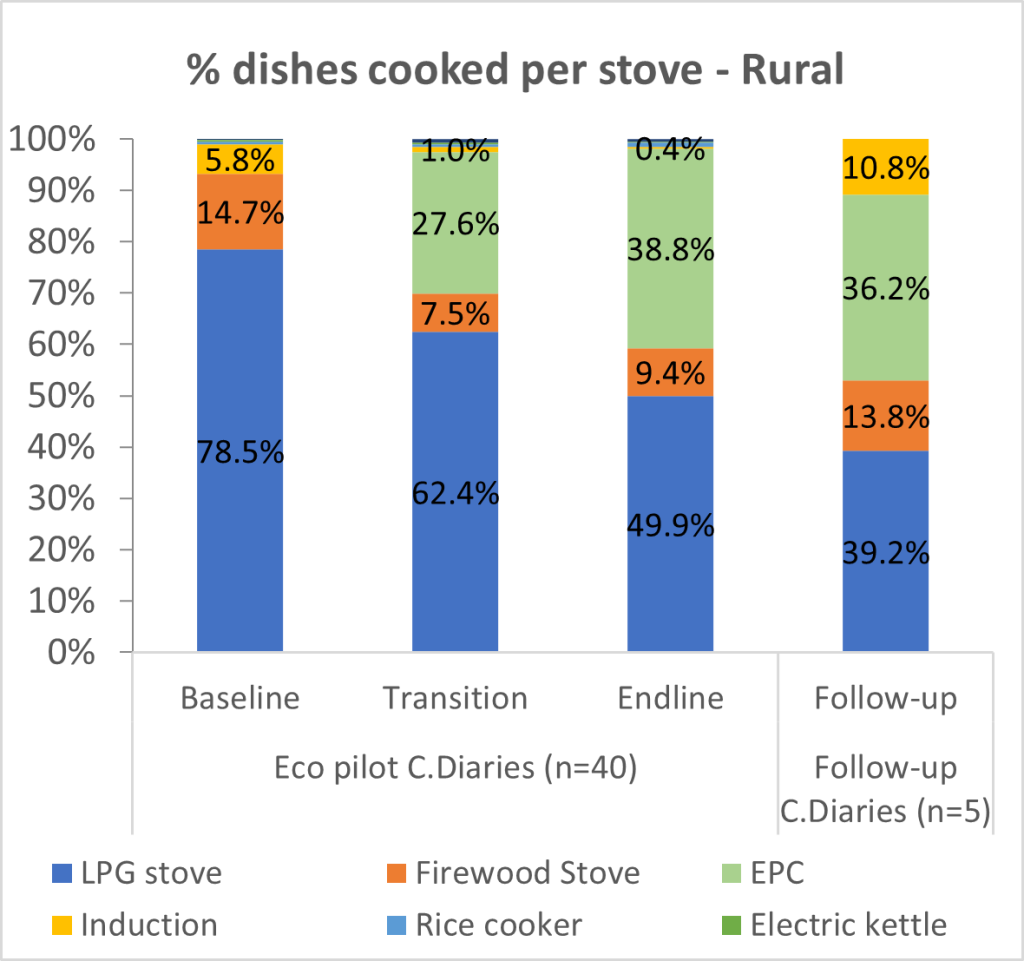
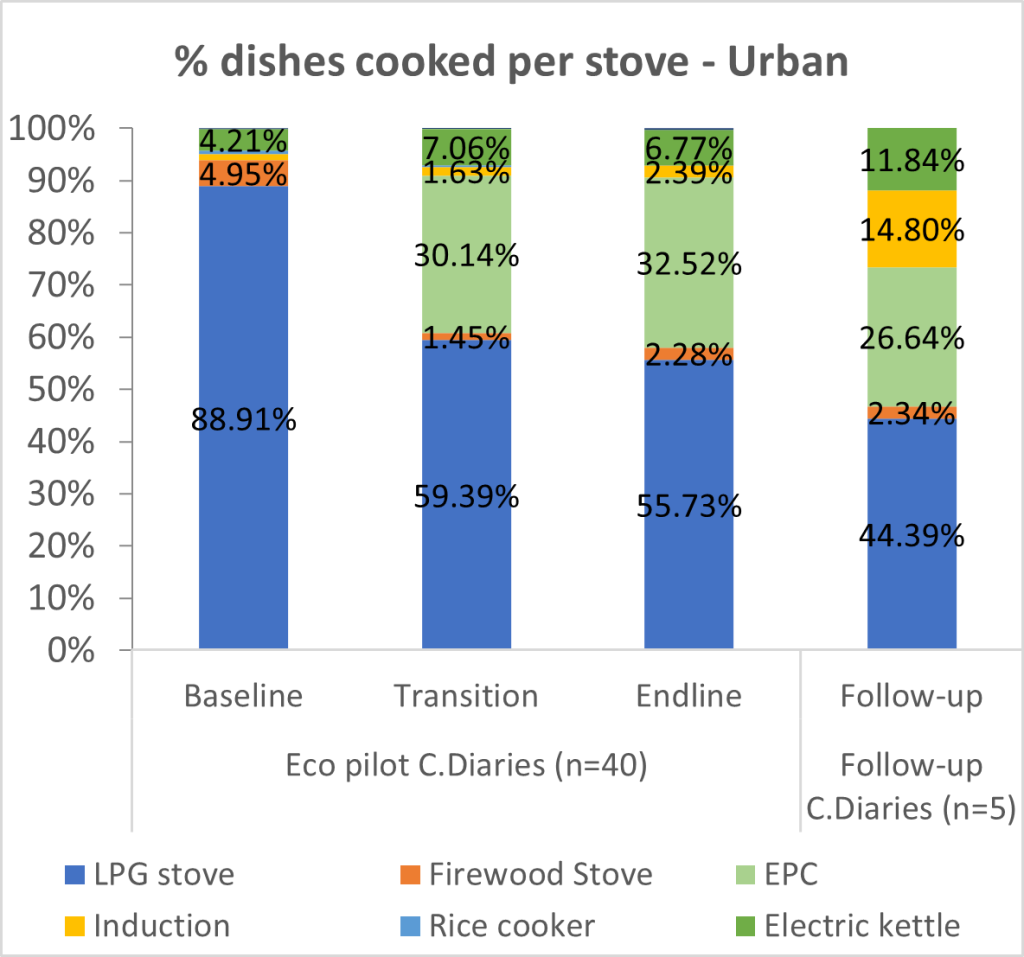
The increase in eCooking led to LPG use falling from 50% to 39% of cooking events in Timal and from 56% to 44% in Banepa. Lower cooking costs compared to LPG were one of the main reasons participants recommended the EPC alongside ease of use, taste of food, and time saved (Figure 3). Use of firewood remained at 2% of cooking events in Banepa but increased from 9.4% to 13.8% in Timal, leaving the overall fuel stack slightly less clean (Figures 1-2). However, this increase may be seasonal as the study took place in winter when firewood cooking is more prevalent due to the co-benefit of space heating. As eCooking, particularly the EPC, was largely used to cook more energy consuming staples such as rice and pulses (Figures 4-5), it is likely that the shift to eCooking is even greater than that shown by the proportion of dishes per fuel analyses in Figures 1-2.

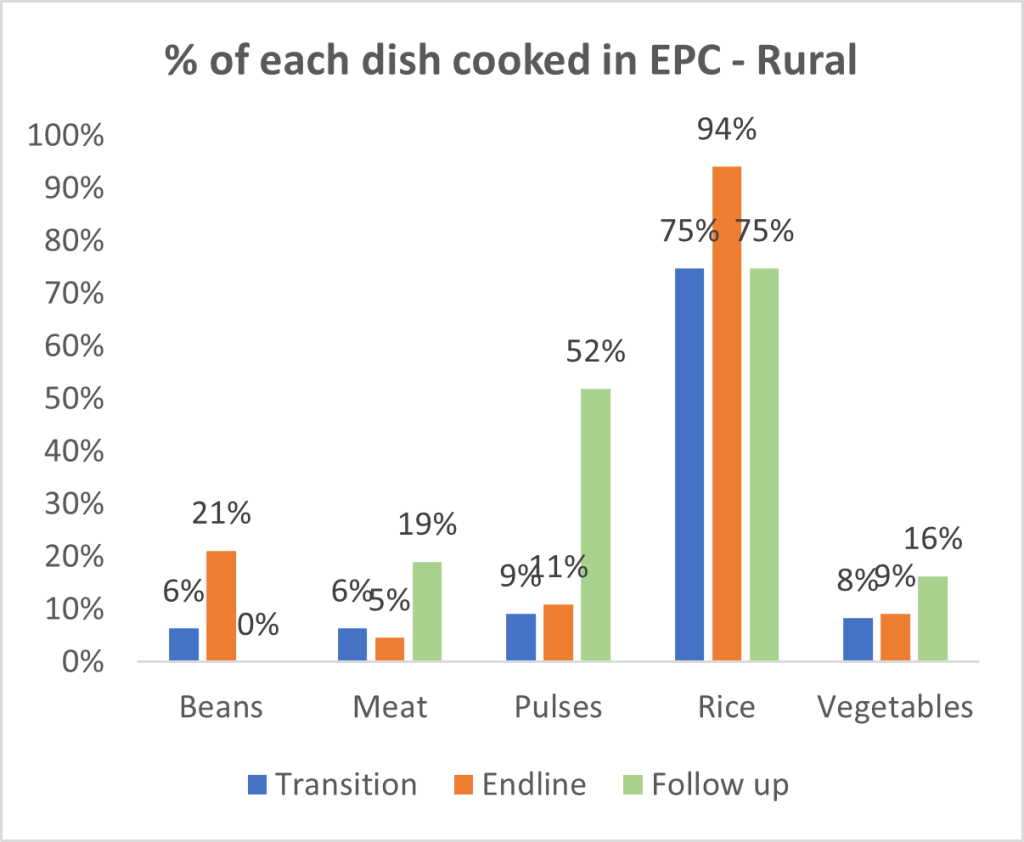
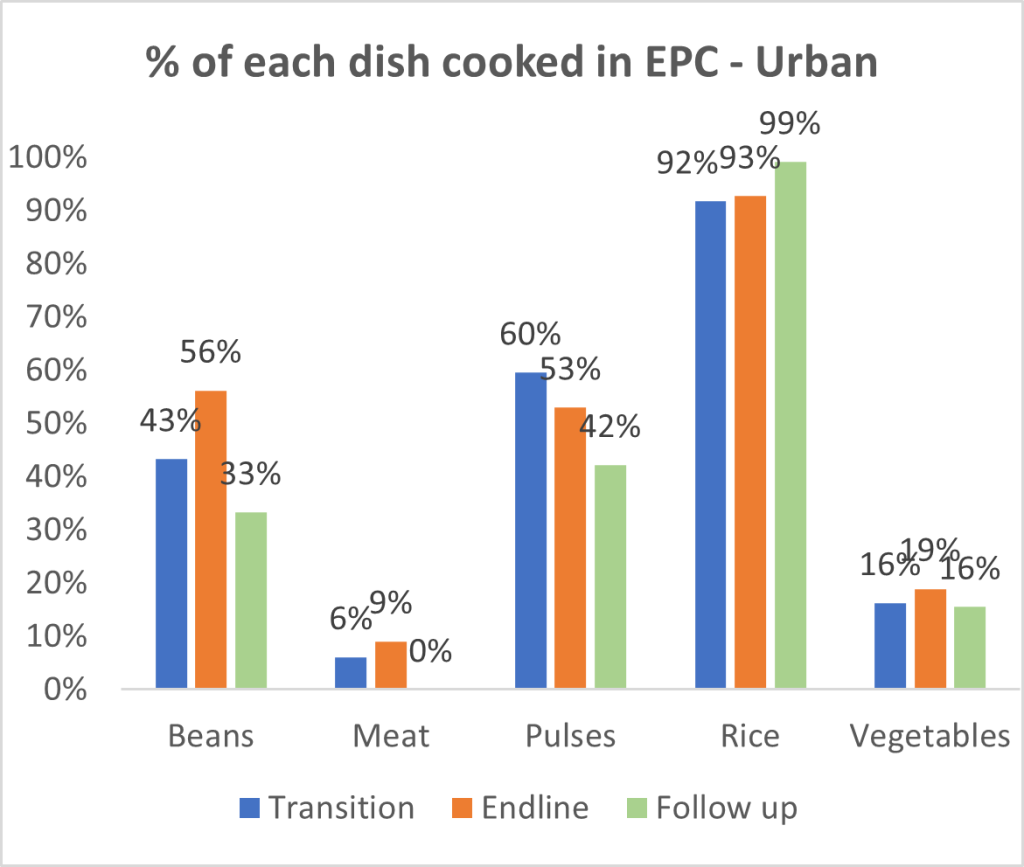
Wider community eCooking transitions
The ECO pilot’s impact extended beyond the participants. Surveying 50 non-ECO participant households, the study found strong positive perceptions of eCooking in each of the four main acceptability metrics assessed (taste, safety, cost, ease of cooking) (Figure 6). Most (44 of 50) non-ECO participants had heard about the ECO pilot, of whom, just under half said their opinions of eCooking had become more positive since the ECO pilot started while none said their opinions had become more negative. 31 (62%) respondents knew an ECO participant, with all reporting that the ECO beneficiary had recommended they buy an EPC. Perhaps most tellingly, 49 (98%) respondents expressed an interest in buying an EPC, far more than any other eCooking appliance. As eCooking appliances were only used by a minority of households before the ECO pilot and none were using EPCs, this finding highlights the impact of the pilot in raising awareness of the benefits of eCooking and the EPC in particular.
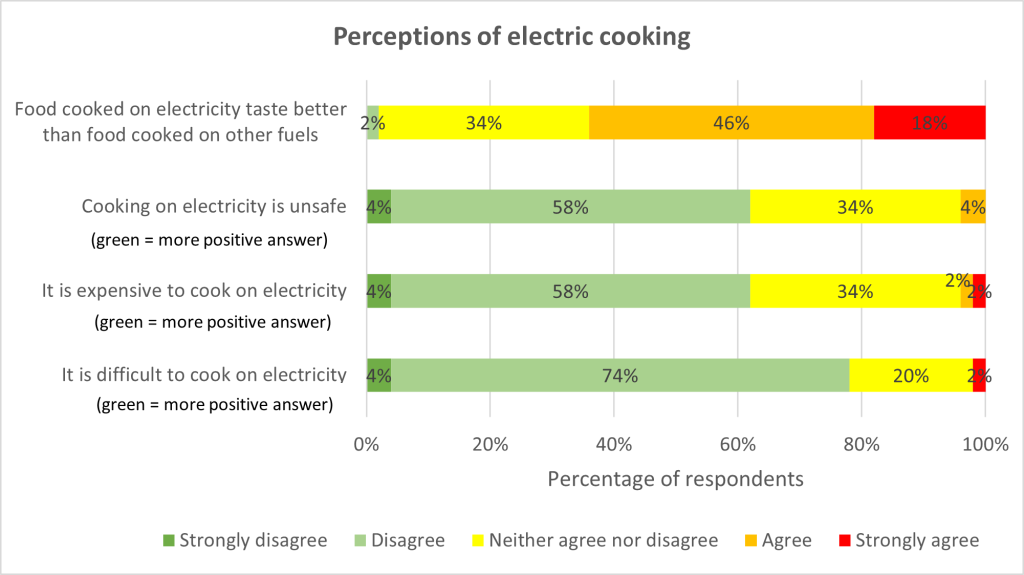
WACN’s SACCO network as a catalyst for community eCooking scale up
The broader use and acceptability of eCooking in both communities highlights how the ECO pilot has helped unlock the potential for WACN’s SACCO network to serve as a catalyst for community eCooking scale up. During the pilot, WACN leveraged the long standing bonds and trust held with its SACCO members to increase community confidence in eCooking and help convince SACCO community members to purchase and use the EPC. The proximity of the SACCOs and WACN to the communities was also key to increasing confidence as it facilitated cross learning among community members and the repair and maintenance support provided by WACN. Going forward, WACN intends to develop this approach to support eCooking among other SACCOs in its network.
Next steps to scale up
Building on the learning of the ECO pilot and follow up study, the WACN team are currently working to scale the approach through the MECS sparking the supply chain (SC2) challenge fund. The 2.5 year project will see WACN leverage the financing capacity of its SACCO network to provide credit support to its members to help overcome the challenge to purchase an eCooking appliance.
Being able to develop, test, and demonstrate the viability of these early supply chains through ECO was particularly important for building confidence in the SC2 proposal, particularly given the more challenging urban and rural markets targeted by WACN’s network. The SC2 project seeks to reach 1,800 households initially, with the ultimate goal to establish an ongoing sustainable supply chain implemented by increasing numbers of SACCOs. An approach which could be used to accelerate transitions in accelerate eCooking transitions in Nepal and beyond.
For more information on the study, the WACN ECO Follow up study final report is available on the MECS website.
…………………………..
Featured image top: A local enumerator conducting in-person interviews with one of the follow up study’s participants (image credit: WACN, 2023).